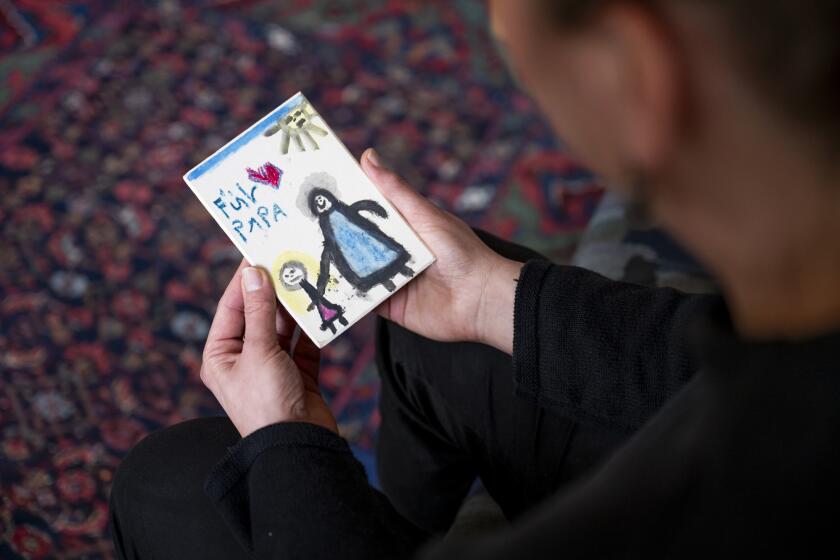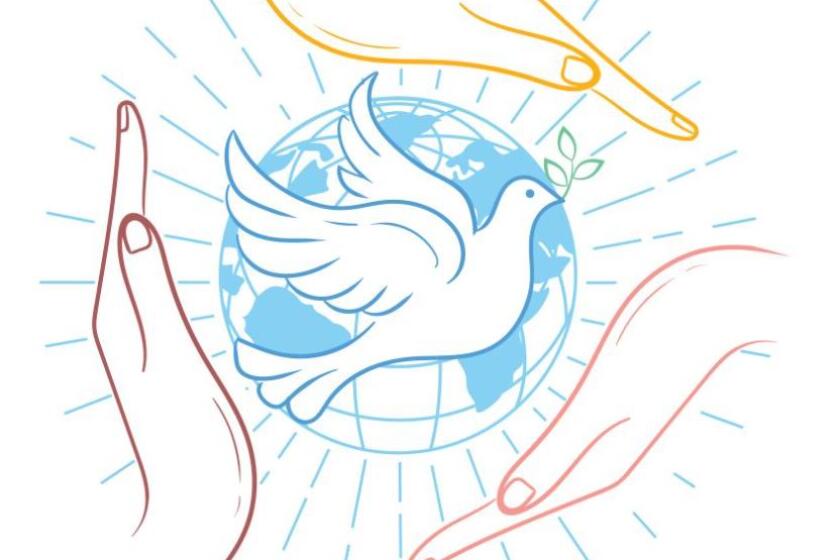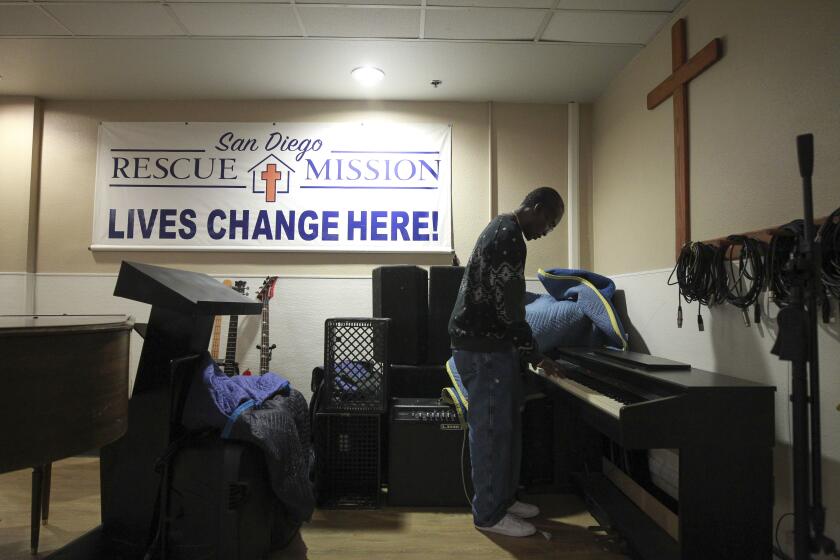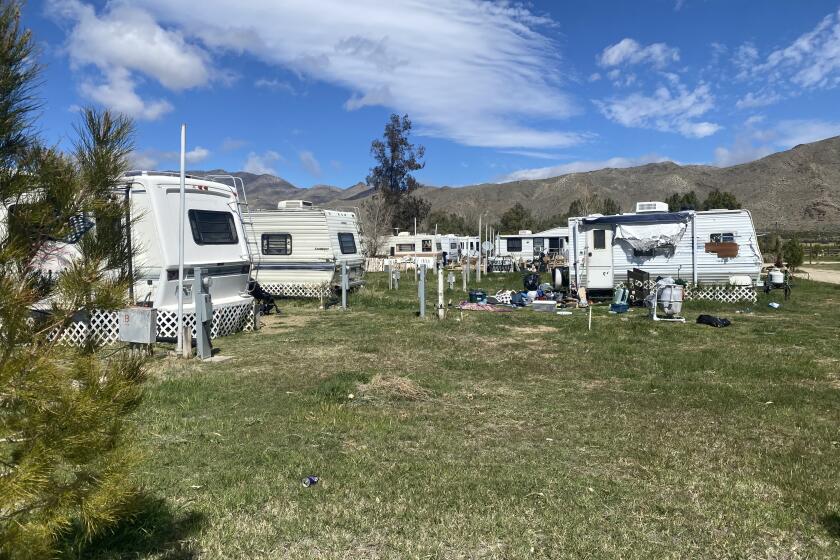Opinion: I am indebted to the La Raza Lawyers Association. Here’s how it helps South Bay students.
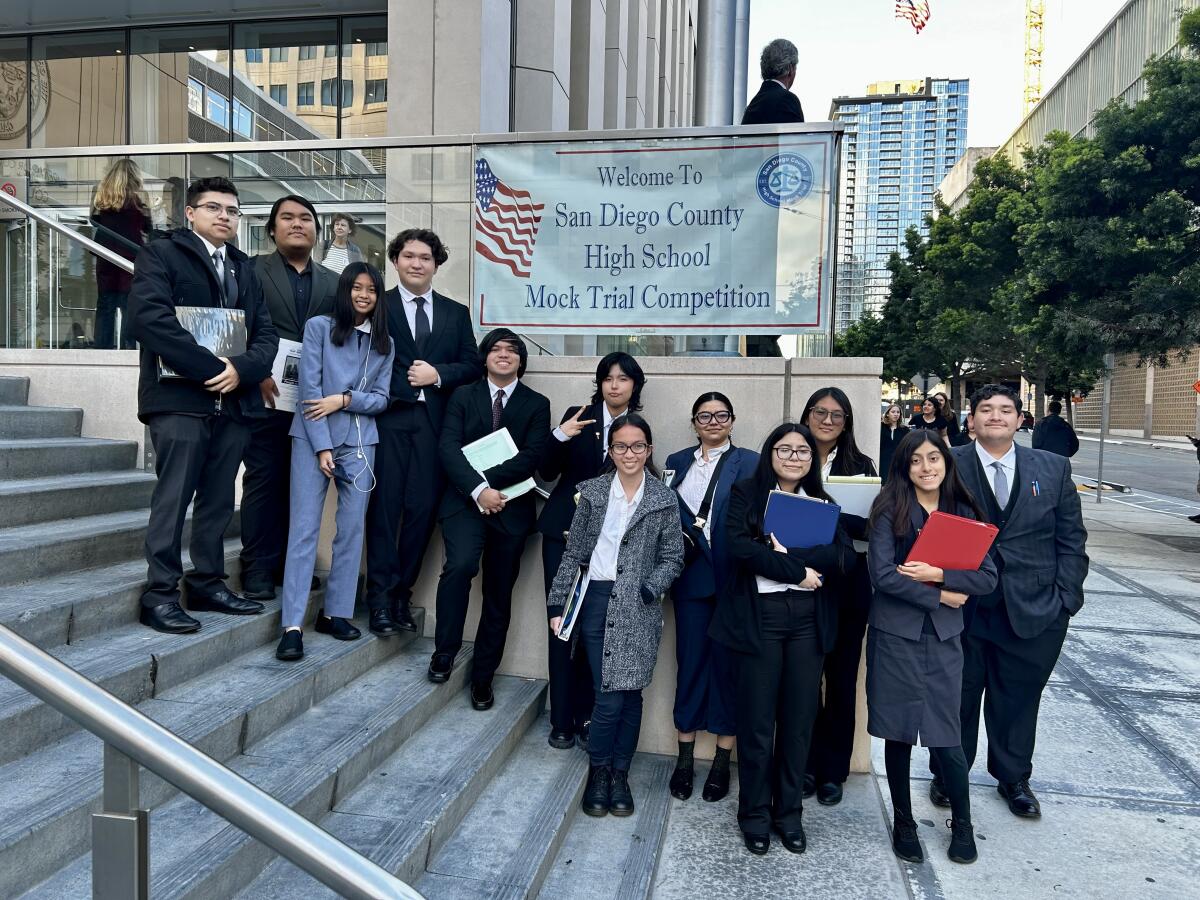
Alcock is a high school teacher and lives in Clairemont.
In the fall of 2021, I was visiting family in Massachusetts when one evening as I checked email I saw a message from a former student at Sweetwater Union High School, where I have taught since 1992. She was asking for help to start a mock trial team at Sweetwater. Mock trials are used in law schools as a way for students to practice courtroom skills. In colleges and high schools, mock trial programs are akin to debate club — a place for students to practice developing logical arguments, speaking in public and dueling with an opponent using the tools of courtroom procedure. I was intrigued and said I would be happy to help. With my colleague Eric Esperon, we recruited some students from Sweetwater and set out on our first campaign.
The case that year was a murder trial, death by snakebite! We had lots of support from the South Bay legal community: attorneys, judges and other public officials. Students started off strong, but we had gotten a late start and, in the end, did not have a team ready for the San Diego County High School Mock Trial Competition in February. Our supporters wanted to reward the students who had persevered; then-National City City Attorney Charles E. Bell, now Judge Bell, arranged for our students to spend some time at the Superior Court in Chula Vista and the team had a chance to perform some parts of the case before Judge Dwayne K. Moring. What has brought mock trial to Sweetwater High School, as well as to other schools in the South Bay, is the strong support of a community of attorneys seeking to expose underrepresented groups to the idea of entering the legal profession. We owe a huge debt of gratitude to the San Diego La Raza Lawyers Association. It has provided financial and advisory support in running our club. The association has paid the $400 entry fee for our team each year, funded buses to take the students on field trips, and provided financial support for food and drink at team meetings — a very important item for teenagers.
The coordinator and cheerleader for this support in the South Bay is Hector Jimenez, a deputy county district attorney. Hector coordinates finances, meetings and scrimmages among schools but also contributes of himself by taking time on weekends to work with teams.
Another strong source of support for our current students has been former students. Sweetwater alumni in the legal profession have generously given of their time, talent and treasure to help this younger generation. An early supporter was San Diego Superior Court Judge Victor Torres, class of 1976. Judge Torres has met virtually with students as well as attending get-togethers with them at the home of one of our alumni coaches.
Our attorney coaches have done most of the work of preparing the team. Three of them are Sweetwater graduates: Carlos Ruan, class of 1983, a defense attorney in private practice who appears in federal court; Corina Rocha Pandeli, class of 1998, a bankruptcy attorney in the Office of the U.S. Trustee, part of the Department of Justice; and Michelle Reynoso, class of 2006, also a defense attorney in private practice. I am very proud to claim a tiny part of Corina’s and Michelle’s success as they were both students in my Advanced Placement U.S. History class when they were high school juniors!
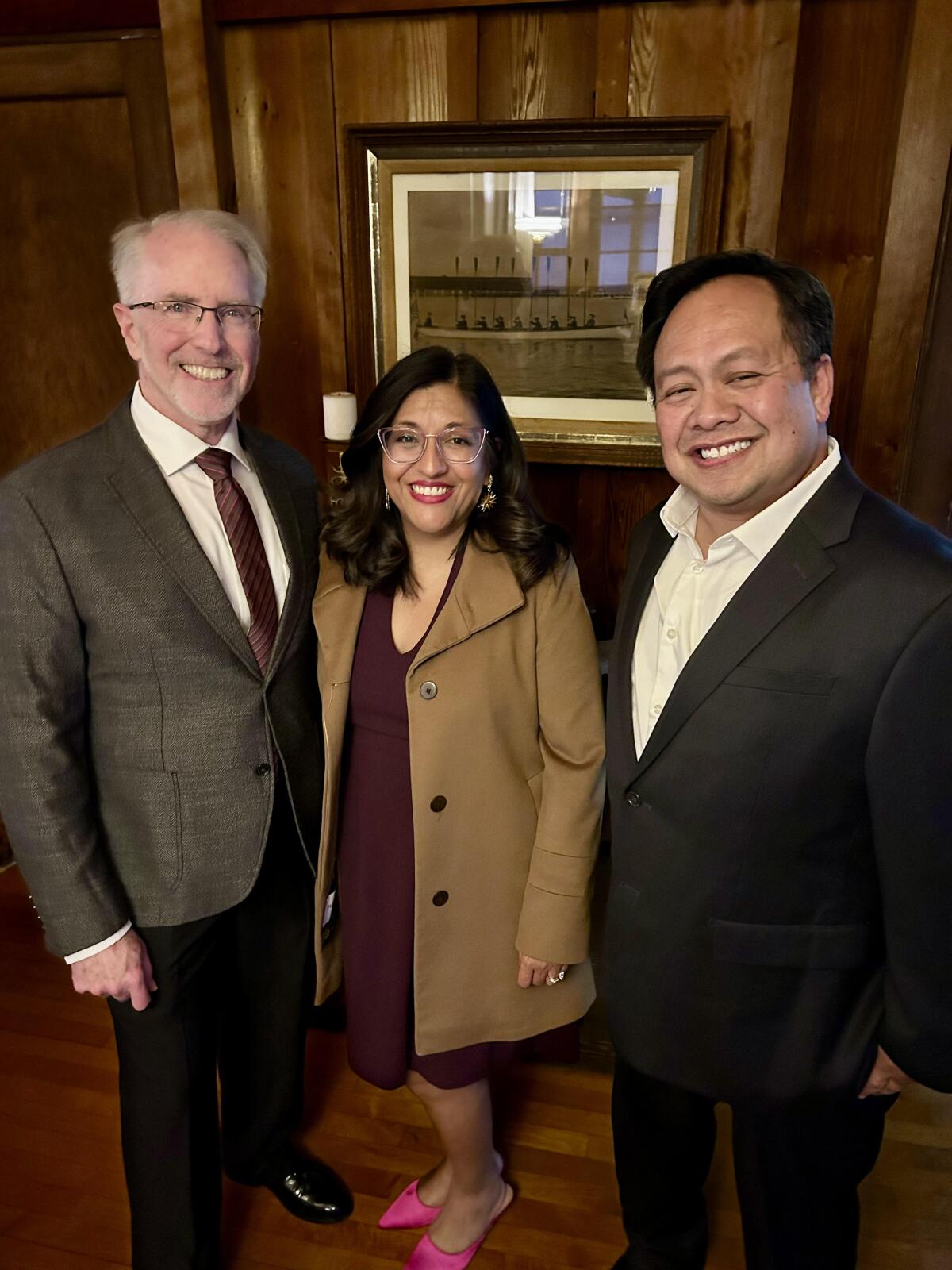
In my view, the great thing about the mock trial program is that it allows students to explore. They are introduced to a new discipline, the law, and they must investigate it with limited guidance from the coaches. The students need to read the legal precedents that are presented to them and determine how to use them to either allow or disallow a specific piece of evidence that might be used in the case. The students are introduced to a fact pattern, the materials in the case, and need to determine how to use those facts to build cases for both the guilt and innocence of the accused. That’s right, teams must present both sides of the case — no playing favorites.
Finally, students are introduced to new aspects of themselves. They must develop new resources of leadership within themselves. They must find new courage to speak in public and contradict another person. They must build new strength to take criticism with grace and new humility to accept that the world does not turn about them.
I have seen our students grow tremendously as individuals in these regards in the program, and that is why I value it.
Get Weekend Opinion on Sundays and Reader Opinion on Mondays
Editorials, commentary and more delivered Sunday morning, and Reader Reaction on Mondays.
You may occasionally receive promotional content from the San Diego Union-Tribune.
